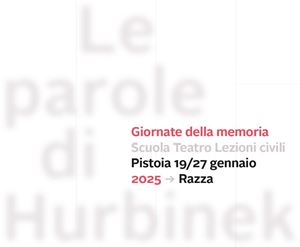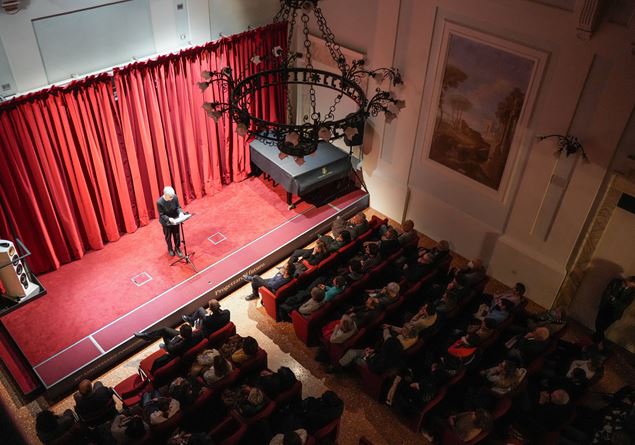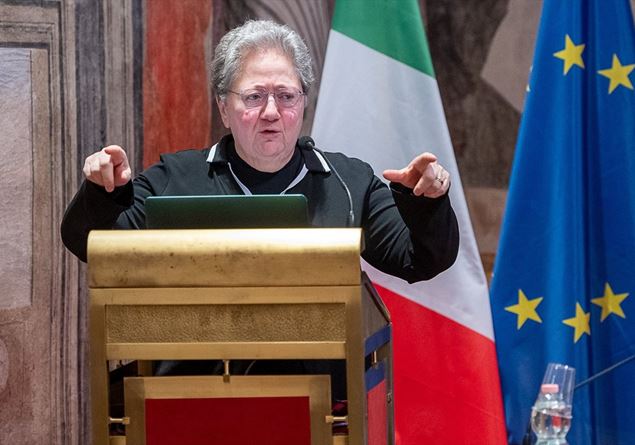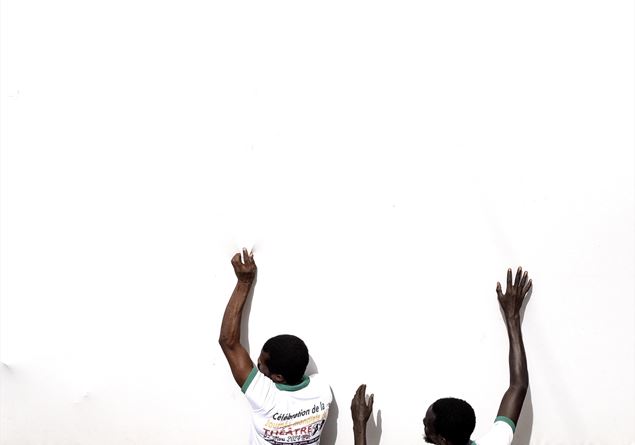Not a spot event, but an entire festival dedicated to memory: Hurbinek’s words it is a cultural journey dedicated to thoughts on the Holocaust and its victimsand, built with the idea of staying away from ritual commemorations that risk concealing rather than placing emphasis on the object and value of memory. An intense week of events around January 27th in Pistoia. Civil lessons, workshops, showsin various locations: Funaro, Piccolo Teatro Bolognini, Palazzo de’ Rossi, Libreria Lo Spazio and in the city’s schools. This third edition focuses on “race”, a world-word that refers to a constellation of other words. Nationalism, suprematism, identity, intolerance, stereotype, fear, violence, purity/impurity frame it and strengthen it, making it more true and real than ever.

The events include January 22nd, at 5.30 pm, at the Saloncino della Musica in Palazzo de’ Rossi, Razza. Order, hierarchy, closed societycivil lesson by David Bidussa, social historian of ideas, former editorial director of the Giangiacomo Feltrinelli Foundation.
On January 23, in the same space, at 5.30 pm Fiction of race and reality of racism: reflections between Italy and the United States, by Silvana Patriarca, historian, professor at Fordham University in New York, moderated by Ginevra Villani. Hurbinek’s words 2025 presents some new features under “shows”: on January 24th, at 8.45 pm, the theatrical debut of The friend found from the text of the same name by Fred Uhlman, translated, adapted and directed by Ciro Masella, staged with Filippo Lai. A tense, poignant and exciting coming-of-age story, one of the most beautiful stories ever written, which takes shape on the stage in all its poetic power. On January 25th again at 8.45pm, at the Funaro, it takes place Trip to Armenia, in a new staging freely based on the work of the same name by Osip Mandel’štam, with the reduction and adaptation by Silvio Castiglioni, also on stage, and by Giovanni Guerrieri, who directs. The evening will be introduced by Stefano Garzonio, a scholar of the Russian writer’s works. On January 26th, at 5.00 pm, it will be staged at the Funaro War Diary – Imaginary Life by Enrica Calabresi, musical show from a text by Isotta Toso, directed by Stefano Cioffi, with Alessandra Evangelisti, live music by Gabriele Coen, sax and clarinet and Riccardo Battisti, accordion: is centered on the figure of the Jewish scientist, a Tuscan woman who fell into oblivion, who following the racial laws was expelled from the university and committed suicide so as not to suffer the shame of deportation. The credit for the recovery of his memory goes to a researcher and teacher from Pistoia, Alessandra Sforzi, who discovered his cards and who will tell us this story on January 26th.
It closes on January 27th, at 5.30 pm, at the Piccolo Teatro Bolognini with How did we get here?a dialogue between Paola Caridi, journalist and essayist, Gad Lerner, journalist and essayist, Stefano Levi Della Torre, art critic and essayist. The meeting will be introduced and moderated by Massimo Bucciantini, Arturo Marzano, professor of Asian history and institutions at the University of Pisa and Eliana Princi, Liceo Artistico Petrocchi of Pistoia.










